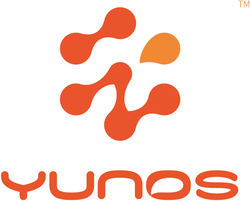Yun OS
 | |
| Developer | Alibaba |
|---|---|
| OS family | Android (Operating System) |
| Working state | Current |
| Initial release | July 28, 2011 |
| Latest release | 5.0 / December 10, 2015 |
| Marketing target | Smartphones |
| Official website |
www |
YunOS (simplified Chinese: 云OS; traditional Chinese: 雲OS; literally: "Cloud OS"), also called Aliyun OS (simplified Chinese: 阿里云; traditional Chinese: 阿里雲; pinyin: ālǐyún) is a Linux distribution designed for smartphones based on the Android Open Source Project. It is developed by Alibaba Cloud, a subsidiary of Chinese company Alibaba Group. Yun OS was released in China on July 28, 2011. The first device to run it was the K-Touch W700.
It took three years for AliCloud, involving 1,600 engineers, to develop Yun OS from the code-base of the Android Open Source Project. The company is challenging the dominant Android in China and is also looking to expand into Western markets.[1]
As of May 2012, 1 million Aliyun-powered smartphones have been sold.[2]
According to TENAA approval for mysterious Meizu phone, it will be YunOS 3.1.6.[3] [4]
YunOS 5 ATOM was released on December 10, 2015.[5]
It is expected to become the second biggest mobile operating system in China by shipments at the end of 2016, with 14% of the market.[6]
Overview
Yun OS revolves around the idea of bringing cloud functionality to mobile devices. According to the company, Yun OS will feature cloud-based e-mail, Web search, weather updates, and GPS navigation tools. In addition, the Aliyun services will synchronize and store call data, text messages, and photos in the cloud for access across other devices, including personal computers. Alibaba says it will offer customers 100 GB of storage at launch. Yun OS would allow users to access applications from the Web, rather than download apps to their devices.[7]
Relations with Android
According to Google, Aliyun is a forked but incompatible version of its open-source Android operating system. The company therefore attempted to prevent Acer Inc. from shipping a Yun OS-powered phone, arguing that Acer, a member of the Open Handset Alliance, had agreed not to produce phones running incompatible Android versions.[8][9] Andy Rubin, who at the time was in charge of the Android division at Google, stated that while Yun OS is not part of the Android ecosystem, it uses runtimes, framework and various tools from Android.[10]
Alibaba disputes the claim that Yun OS is a version of Android by stating the following:[10][11]
Yun OS incorporates its own virtual machine, which is different from Android's Dalvik virtual machine. Yun OS' runtime environment, which is the core of the OS, consists of both its own Java virtual machine, which is different from Android’s Dalvik virtual machine, and its own cloud app engine, which supports HTML5 web applications. Yun OS uses some of the Android application framework and tools (open source) merely as a patch to allow Yun OS users to enjoy third-party apps in addition to the cloud-based Aliyun apps in our ecosystem."
However, the Aliyun app store prominently features pirated Android applications, including many from Google.[10][12]
Application Blockage
In 2015 November, following Chinese State Administration of Press, Publication, Radio, Film and Television's policy, dozens of third-party applications installed by users on their own Yun OS set-top boxes are automatically removed and blocked from re-installation.[13]
References
- ↑ Osawa, Juro (2012-09-09). "Chinese Software to Challenge Android - WSJ.com". Online.wsj.com. Retrieved 2012-11-17.
- ↑ "Alibaba Cloud Computing and Haier GroupLaunch Aliyun OS-Powered Smartphone : Global Growth Investors". General Atlantic. Retrieved 2012-11-17.
- ↑ Karshim Kanwar (2015-10-13). "Mysterious Meizu M3 Note Passes through TENAA". technosamigos.com. Retrieved 2015-10-13.
- ↑ "Meizu M57A TENAA Approval".
- ↑ "阿里YunOS 5发布:稳居国内手机操作系统前三". csdn.net. Retrieved 2015-12-15.
- ↑ Perez, Bien (November 27, 2016). "Alibaba’s YunOS overtakes Apple’s iOS as China’s second-largest smartphone operating system". South China Morning Post. Retrieved November 27, 2016.
- ↑ Reisinger, Don (2011-07-28). "Alibaba OS-powered handset launching this month | The Digital Home". CNET News. Retrieved 2011-09-07.
- ↑ Andy Rubin. "We were surprised to read Alibaba Group's chief strategy…". Google+. Retrieved 2012-11-17.
- ↑ Brodkin, Jon. "Google blocked Acer’s rival phone to prevent Android "fragmentation"". Ars Technica. Retrieved 2012-11-17.
- 1 2 3 Jon Brodkin (2012-09-17). "Pirated Android apps featured prominently on Aliyun app store". arstechnica.com. Retrieved 2014-03-17.
- ↑ Moyer, Edward (2012-09-15). "Alibaba: Google just plain wrong about our OS". CNET News. Retrieved 2012-11-17.
- ↑ "Aliyun App Store Confirmed To Be Distributing Pirated Android Apps, Many From Another Pirate Site". Androidpolice.com. Retrieved 2014-03-18.
- ↑ "广电总局再发大招 七成电视盒子被"阉割"_国内国际_新闻首页_成都全搜索". News.chengdu.cn. Retrieved 2017-05-09.